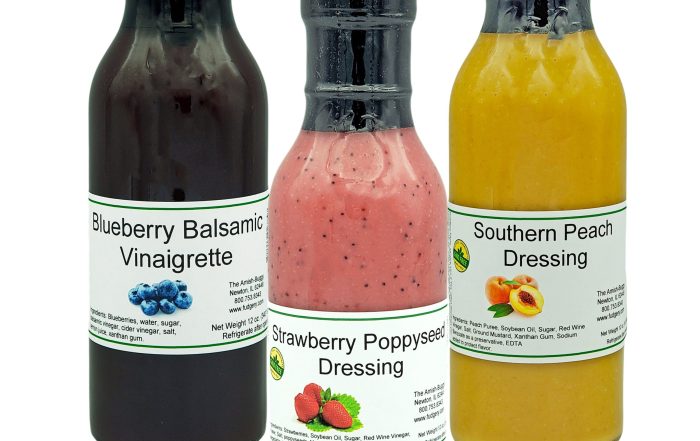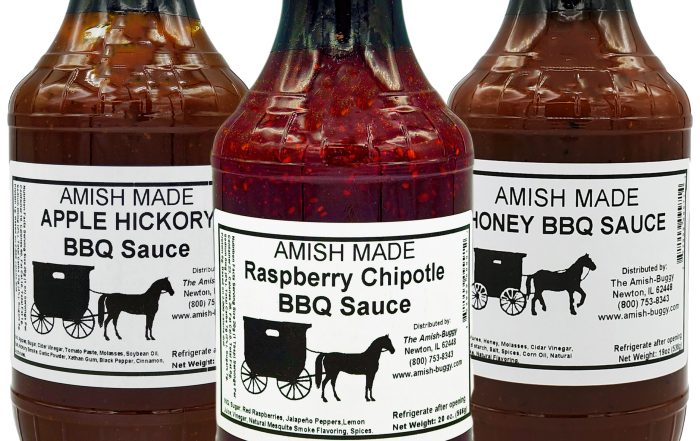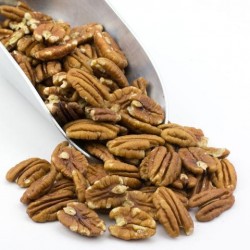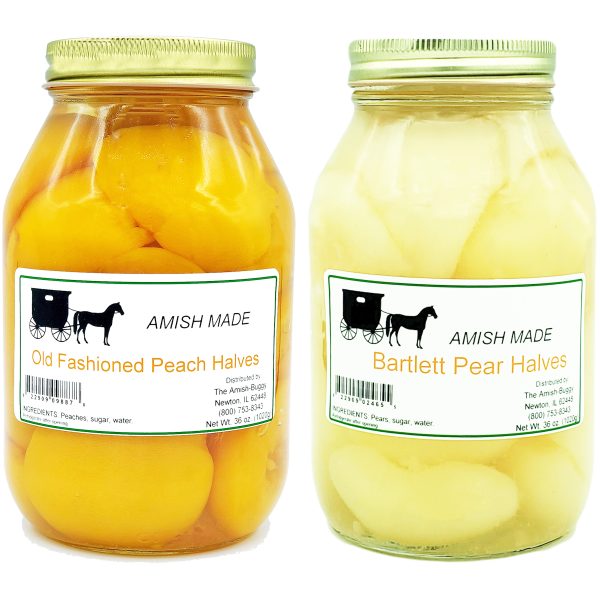
Latest Blogs
When it comes to fresh produce, many people are becoming more selective about what they put on their plates. And for good reason! With rising concerns over artificial fertilizers, pesticides, and the impact of large-scale farming, people are increasingly turning to more natural and sustainable sources. One such gem is the Amish Fruits & Vegetables, which are now making waves for their exceptional quality, unmatched flavor, and traditional farming practices. But what makes Amish produce so special? In this article, we’ll explore how Amish farming techniques are setting a new standard for fresh produce.
The Amish Tradition of Farming: A Legacy of Simplicity and Quality
The Amish community has long embraced a lifestyle rooted in simplicity, sustainability, and hard work. Unlike large-scale industrial farms that rely on machines, the Amish primarily use horse-drawn equipment and avoid modern technologies. This slow, deliberate process may seem old-fashioned, but it offers many benefits—allowing farmers to focus on quality over quantity. Amish farmers place a strong emphasis on soil health, crop rotation, and natural fertilizers, leading to vibrant, nutrient-rich produce. Their sustainable methods not only protect the environment but also result in healthier and tastier fruits and vegetables.
What Sets Amish Fruits and Vegetables Apart?
There are several unique aspects of Amish produce that make it stand out in a crowded market:
1. Organic-Like Practices Without Certification
Although not all Amish farmers seek organic certification, their natural farming methods closely align with organic standards. They avoid synthetic pesticides and fertilizers, opting for composting, manure, and crop rotation to maintain soil fertility. This ensures that their produce is free from harmful chemicals and pesticides.
2. Hand-Harvested for Optimal Ripeness
Amish farmers carefully hand-pick their fruits and vegetables, ensuring they are harvested at peak ripeness. Unlike produce from commercial farms, which is often picked early to withstand shipping, Amish produce retains full flavor and nutrition.
3. Local and Seasonal Availability
Amish farms grow seasonal crops, ensuring customers receive the freshest fruits and vegetables available. You won’t find out-of-season strawberries or tomatoes here—just fresh, flavorful produce that reflects the rhythms of nature.
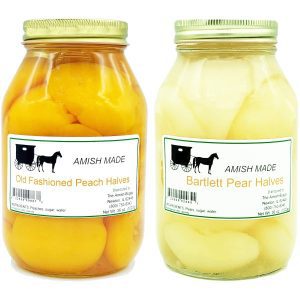
Flavor That Stands Out: A Culinary Delight
If you’ve ever tasted produce from an Amish farm, you probably noticed the difference right away. The flavors are more pronounced, with fruits like ripe peaches or juicy tomatoes bursting with natural sweetness. Vegetables such as sweet corn, squash, and heirloom carrots deliver bold, earthy tastes that can elevate any dish. It’s not just the taste, either. Nutrient-dense foods from Amish farms are packed with vitamins and minerals, supporting a healthier lifestyle. Unlike mass-produced fruits and vegetables that often lack flavor and nutrients, Amish-grown produce delivers a superior eating experience.
Sustainability at the Heart of Amish Farming
One of the biggest draws of Amish fruits and vegetables is their environmental impact—or lack thereof. Amish farming practices are gentle on the land, prioritizing soil health and water conservation. Here’s how they accomplish that:
- Crop Rotation: Changing what is planted seasonally prevents soil depletion and reduces the risk of pests.
- No-Till Farming: Many Amish farms limit or avoid tilling, which preserves soil structure and prevents erosion.
- Composting: Natural composting practices enrich the soil without synthetic fertilizers, promoting long-term soil health. These practices not only result in high-quality produce but also ensure that the land remains fertile for future generations.
The Growing Popularity of Amish Farmers’ Markets
In recent years, Amish farmers’ markets have seen a surge in popularity. More people are seeking out local, sustainable produce and are drawn to the idea of supporting Amish communities. Visiting these markets offers a unique experience—you’re not just shopping for food; you’re engaging with farmers who have a personal connection to the land they cultivate. Amish farmers are known for their humble and honest approach, often selling their produce at fair prices without the markups seen in larger stores. Many of these markets offer seasonal fruits, vegetables, fresh baked goods, and handmade products, adding to their appeal.
Where to Find Amish Produce Near You
If you’re eager to try Amish fruits and vegetables for yourself, you can visit Amish-owned stores, farmers’ markets, or roadside stands. Some popular areas with Amish communities include Pennsylvania, Ohio, and Indiana, where you can often find produce stands brimming with fresh fruits and vegetables throughout the growing season. Even if you don’t live near an Amish community, many markets now feature **Amish-grown products** or partner with local co-ops to deliver fresh produce directly to consumers.
How Amish Produce Aligns with the Farm-to-Table Movement
The farm-to-table movement has been growing rapidly, encouraging people to eat locally sourced food that minimizes the environmental footprint. Amish produce fits perfectly within this movement because it is grown close to home and follows eco-friendly practices. Restaurants and chefs have also begun incorporating Amish fruits and vegetables into their menus, celebrating the unique flavors and seasonal freshness. Some even say that Amish produce plays a key role in redefining farm-to-table dining experiences.
Making the Switch: Why You Should Consider Amish Produce
Switching to Amish fruits and vegetables isn’t just a health-conscious choice; it’s a commitment to supporting sustainable agriculture and small farmers. Here are some reasons why you should consider making the switch:
- Fresher, Healthier Food: The nutrient-rich quality of Amish produce promotes better overall health.
- Better Flavor: Hand-picked at peak ripeness, Amish fruits and vegetables deliver unmatched taste.
- Support for Local Farmers: Choosing Amish products means supporting hardworking farmers and sustainable practices.
- Eco-Friendly Farming: Help reduce the environmental impact by opting for produce grown using earth-friendly methods.
How to Incorporate Amish Produce into Your Diet
Ready to make Amish produce a part of your meals? Here are a few ways to enjoy these flavorful fruits and vegetables:
- Fresh Salads: Use Amish-grown lettuce, tomatoes, and cucumbers for the freshest salads.
- Homemade Smoothies: Blend Amish berries, peaches, or apples for a nutrient-packed morning smoothie.
- Seasonal Soups: Cook up hearty soups with Amish potatoes, carrots, and squash in the fall and winter.
- Grilled Vegetables: Summer BBQ? Toss some Amish-grown corn and zucchini on the grill for a delicious side dish.
Conclusion: Taste the Difference with Amish Produce
Amish fruits and vegetables offer more than just sustenance—they represent a way of life rooted in tradition, sustainability, and exceptional quality. In a world dominated by fast food and mass production, Amish produce is a breath of fresh air, bringing back the simple pleasure of eating wholesome, flavorful foods. From their chemical-free farming practices to their dedication to soil health, Amish farmers are setting the standard for what fresh produce should be. Whether you’re visiting a local farmers’ market or picking up a few jars of preserves from Arndt’s Fudgery, incorporating Amish-grown fruits and vegetables into your diet is a choice you won’t regret. It’s not just food—it’s a lifestyle shift towards better health, better flavor, and a better planet.
Check out our Facebook for more news!
FAQs
1. Is Amish produce certified organic?
Not all Amish produce is certified organic, but most farmers follow organic-like practices, avoiding chemicals and synthetic fertilizers.
2. Where can I buy Amish-grown fruits and vegetables?
You can find Amish produce at farmers’ markets, roadside stands, and specialty stores, especially in areas with large Amish communities.
3. What are the most popular Amish-grown vegetables?
Some popular Amish vegetables include sweet corn, heirloom tomatoes, squash, carrots, and potatoes.
4. How does Amish produce stay fresh without refrigeration?
Amish farmers harvest their produce daily and sell it quickly, ensuring it remains fresh without the need for extended refrigeration.
5. What is the difference between Amish and industrially farmed produce?
Amish produce is grown using sustainable practices, hand-harvested, and offered seasonally, resulting in better taste and nutritional value compared to industrially farmed alternatives.

